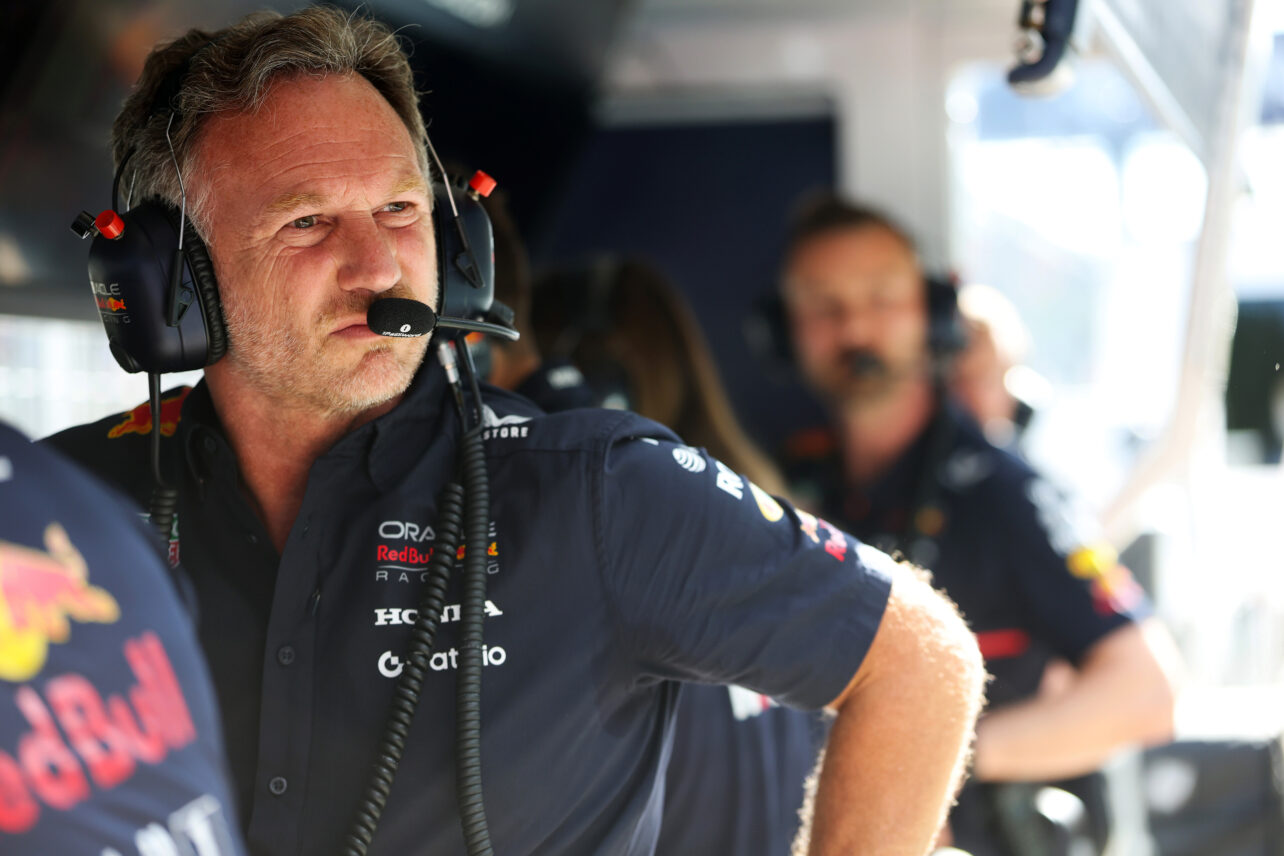Hi friends.
Yes, the recap is a day late. But I have a good reason! I was in the office all day yesterday, and I fell asleep the second I got home. So… This week, Friday is recap day.
Top Story of the Week: Christian Horner Sacked by Red Bull
After two decades at the helm of Red Bull Racing, Christian Horner has been relieved of his duties as CEO and Team Principal. A move that, while shocking, has been a while in the making. The 51 year old Englishman departs, leaving a track record which includes eight drivers’ titles and six constructors’ titles since 2005. But the downfall of one of Formula 1’s most successful and influential figures has as much to do with political miscalculations as it does with declining performance on track.
The turning point in came in early 2014, when a female employee accused him of sexual misconduct. Although he was cleared by internal investigations twice, it permanently altered the dynamics at Red Bull. It exposed and perhaps even widened internal fractures within the team.
Key stakeholders, including Max Verstappen’s father Jos, publicly warned that the team would fall apart if Horner stayed. Adrian Newey, arguably the greatest technical mind in F1 history, resigned later that year, with reporting citing the atmosphere surrounding the allegations as a key factor in his decision to leave for Aston Martin.
Even after surviving the scandal, Horner’s political capital was depleted. And factoring in the poor performance of the team, the team has been destabilised and finds itself at a crossroad. It’s star driver unsettled, staff departing, results faltering – There was little choice but to make a change.
Horner’s exit can’t be attributed to a single decision, but rather a line of misjudgements that ultimately cost him his position.
On the driver side, Horner offered Sergio Perez a two year extension in mid-2024, despite Perez struggling to get to grips with the car and his declining form. Perez was cut loose at the end of the year, at a reported cost in the €15 million area. He then promoted Liam Lawson to the troublesome 2nd seat, who lasted a mere two races before being replaced by Yuki Tsunoda, who is currently finding himself 17th in the drivers’ championship, facing the same challenges as Perez and Lawson before him.
Then we have the loss of Adrian Newey, Jonathan Wheatley and Will Courtenay. Newey left Red Bull after decades of technical brilliance. Wheatley, long considered part of Red Bull’s operational bedrock, now heads Sauber. Head of Strategy Will Courtenay went to McLaren, eroding the team’s strategic depth.
On track, the team’s results have dropped off a cliff. After a record-setting 2023, the team has won just four of the last 26 races, with Verstappen securing only two wins so far this year. Their position in the Constructors’ Championship has tumbled to fourth, last of the top teams.
This step backwards has made Verstappen’s future a central story point as we head into the second half of the season. The reigning world champion is reportedly being courted by Mercedes, and while he’s under contract until 2028, his growing frustration with the team’s instability and performance has cast doubt over his commitment.
Much of the dysfunction inside Red Bull can be traced back to the internal power struggle that began after the death of Red Bull co-founder Dietrich Mateschitz in late 2022. Several camps saw the power vacuums and moved to consolidate control. But Horner’s efforts to marginalise long-time adviser Helmut Marko were met with resistance, especially from Verstappen’s camp, who made it clear they would leave if Marko were pushed out.
Horner was once an untouchable cornerstone of Red Bull’s dominance. But by 2025, he had become a liability. With declining results, fractured leadership, questionable driver decisions and the potential loss of their greatest asset in Verstappen, Red Bull’s management ran out of reasons to keep him on.
He may leave with a legacy of success, but his final few seasons were marked by miscalculations and mistrust. Red Bull’s challenge now is a great one: How to rebuild the team’s culture, performance and credibility from the inside out.
The Rest of the Stories This Week:
- Mohammed Ben Sulayem removes Britain’s FIA senate representative
- Former Cheif Steward Tim Mayer is running against Mohammed Bun Sulayem in the FIA Presidential election
- Liberty Media completed the acquisition of MotoGP
- Apple is in talks to secure the US Formula 1 streaming rights
- McLaren have failed to find a buyer for their Formula E team
- Ferrari has renewed Antonio Giovinazzi’s contract with their endurance team
- Felipe Drugovich will make his Formula E debut with Mahindra at the Berlin E-Prix
- BMW and Rahal Letterman Lanigan Racing will split after the 2025 IMSA season
- Gene Haas drove the VF-23 at Goodwood
- James Vowles and Rachel Rolph had their second child
- Cadillac and Keanu Reaves have teamed up for a docuseries following the team’s preparations for their debut in 2026
That’s it for this week, thank you for being here.
If you want to support me, you can help fuel the snack addiction that powers me through compiling these lists and vetting the stories – you can do so on Buymeacoffee or Patreon.
